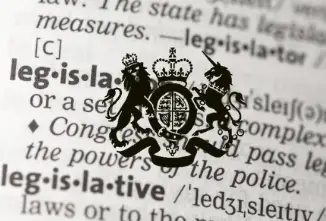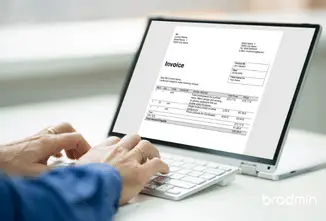The UK Late Payment Law says that all businesses have the right to charge their clients interest on late payment unless otherwise agreed.
The law clearly states that payment MUST be received in the first 30 days of sending the invoice or delivery of goods or services, whichever one is later.
Some firms, however, especially the large ones, will require or demand longer payment terms of between 60 and 120 days.
Everything concerning late payments is under the 1998 Act of the Late Payment of Commercial Debts, enforced in November of 1998. [1]. Over the years, it has gone through several amendments to fall into the European Directive, but essentially it remains the same.
One point to be remembered about this law is that it only applies to commercial debt, although it is not exclusive to limited companies. Other businesses such as freelancers, sole traders, and other types of entrepreneurs can also use the law.
It has got two main purposes;
- To compensate creditors for any late payments of debts
- To deter late payments.
In brief, this law says that invoices that are paid late should attract interest charges.
Additionally, for any invoice placed after 16th march of 2013 that is late, the business owner is allowed by law to claim any other reasonable costs related to collecting the debt.
In this case, the interest to be claimed is charged at the rate of 8% above the base lending rate of the Bank of England. The additional compensation should be between £40 and £100 for each invoice.
A short introduction to UK late payment law (Interest) act 1998
The UK was one of the first countries within the EU to implement the late payment act to help promote a prompt payment culture. Since 1998, there has been a late payment legislation that saw businesses having the statutory right to charge interest for all late payments.
The private sector and large firms have been using this law since 1998, while the small firms have been able to use it since 2002.
As mentioned earlier, there was a clear amendment in March of 2013 that allowed business owners to charge extra fees for collecting late invoices.
Most of these measures are geared towards reducing the culture of late payments and making payment on time a norm. The laws made in 2013 are not compulsory, and the supplier decides whether or not to use them.
But, any unpaid supplier of goods and services has the right to claim interest on any overdue debts and should be compensated under the 1998 Act.
The compensation is recoverable according to the level of debt. For example, for any debt less than £1,000, a fee of £40 is applicable.
For debts that are more than £1,000, and less than £10,000, then a fee of £70 is recoverable. For all debts that are above £10,000, a fee of £100 is recoverable.
However, it is possible to recover any reasonable late payment fees, debt or costs incurred, even those that exceed these amounts.
This Act applies to all debts arising from most contracts for the sale of goods or the delivery of services between businesses. Contracts for credit agreements, mortgages, pledges, or other employment and security contracts are excluded.
What does the law say on late payment of invoices?
Late payments are a significant obstacle to the free movement of goods and services, and they can substantially distort the competition. As a result of this, administrative and financial burdens are likely to impede trade and increase the costs of doing business.
Medium-sized businesses and small enterprises or SMEs are the most vulnerable.
Therefore, this revised directive is meant to strengthen the current order to extend the protections already in place and enjoyed by UK businesses across the Union.
The legislation is further aimed at creating an environment for on-time payments. The continuous late payments of commercial debt is unacceptable to the business community, and they can never be substituted for effective customer relationships and cash flow management.
The European Commission believes that after introducing the law to all the EU member states, this will mean more than £90 billion to businesses across Europe. [2] This will certainly help relieve any cash flow problems.
This is legislative for the UK. It is recognized as an exemplar for member states, which includes introduced measures to drive the culture of payment according to the agreed terms and conditions.
The evidence suggests that the best way of securing payments on time is to agree to the terms and conditions in advance and invoice accurately. Most of the effort, therefore, should be focused on managing customer relationships and cash flow management.
Late payment law agreements
Once an agreement has been reached on the payment date, the law states that this payment should be made within 30 days for public authorities and 60 days for other business transactions.
Businesses could agree on a more extended payment period exceeding 60 days, as long as there was a pre-agreed and pre-written agreement. If no agreement has been made, the law reverts to 30 days after the invoice has been delivered or goods have been delivered.
The EU late payment law
The European Parliament adopted a resolution that set out their position on implementing DIRECTIVE 2011/7/EU, whose purpose was to combat late payments of commercial transactions.
This directive that the Member States were supposed to implement came into effect in March of 2013. [3]
It was put in place to help protect businesses, particularly SMEs, from the challenges posed by late payment of invoices when bank loans and credit lines had become less available after the financial crisis.
This resolution was then forwarded to the EU council, the Member States, and the commission. The main provisions they suggested in the directive included the following;
- That all Public Authorities are required to pay their invoices for any goods and services they receive within the first 30 days, on 60 days when there are exceptional circumstances.
- That all businesses must pay their invoices within 60 days unless they have a different and express agreement.
- That creditors are entitled to the statutory interest for the late payment. This is set at 8% above European Central Bank’s base rate or referenced rate.
Does the late payment law work?
Not exactly. This law has not been 100% successful, and late payment of invoices remains a significant issue across the EU, which is causing creditors some cash flow issues and insolvency.
For example, due to insolvency, it was reported that the company – Carillion owed almost £2 billion to more than 30,000 suppliers, short-term creditors, and subcontractors. A certain percentage of these companies were on 120-day payment terms, and they were on a “pay when paid” basis as well. [4]
It is difficult to see the basis on which such terms were applied to an SME and how they would have stood up to the “fairness” test.
These SMEs cannot agree on different terms if they wish to work with specific companies as they are usually overpowered.
The EU parliament believes that the national legislation and the Late Payment Directive should be better enforced.
The resolution has already set out their suggestions for the remedial and preventive measures aimed at combating this issue. These measures include the following;
That Member States should establish mediation services geared towards helping payment disputes as an alternative to bringing court proceedings. This almost always damages business relations and sets one up to pay the ombudsman.
That member states establishing stricter payment terms should introduce enhanced transparency on payment behavior.
That member states and the commission should take suitable measures such as issuing guidelines on the best practices and, where necessary or appropriate, have legislative initiatives to help combat the problems.
Why you can use the late payment law
There are two main reasons for using this Act;
- The first; is to help you receive compensation for the late payment of commercial debts.
- Secondly is to deter any late payments.
It works for commercial transactions and late payments.
We are saying that; you can use this law to claim payment of late invoices and help you charge interest and other accrued fees on invoices that are paid late.
However, these fees must be reasonable, and the law allows an interest rate of 8% above the Bank of England’s base rate.
If you find yourself having an unpaid invoice for services rendered or goods delivered, you are entitled to ask your client to pay more than the invoice amount.
Under the Law, UK businesses can react to 1 out of 10 invoices paid late through interest charges and the recovery of other costs associated with the debt collection. [5]
When can you start using the late payment law?
The Late Payment Law is all about ensuring that clients pay on time, and if they don’t, you can charge them interest on the invoice amount.
So, you can start using this law the minute an invoice because due, and hence considered late. As per the 1998 Act, if the contract has a specified payment date or deadline, then the payment is late when the deadline expires.
If the contract does not include the payment deadline, then the default becomes 30 days after either;
- Service or goods delivery, or
- Invoice delivery.
Once the verification has taken place, and goods are verified as complying with the stipulated contract terms, then this payment should be made.
However, there are usually exceptions to this rule. For example, if you have an agreement with your client to extend the deadline to more than 60 days, and this is not considered as “Grossly Unfair” to the supplier, then it can be allowed.
The interest in this case would be charged after the 60 days elapse.
Additionally, if there is an acceptable procedure that needs to take place for more than 30 days after the delivery has been made, and it is not judged as being “Grossly Unfair” to the supplier, it is allowed and the interest will be charged after the 30 days are over.
The term “Grossly Unfair” is used when trying to protect the supplier. There should be utmost good faith and fair dealing when conducting business between two parties, and one should not be seen as trying to take advantage of the other party.
The late payment ‘interest’ law
When another business is late paying your invoice, the interest allowed by law to charge is called “statutory interest.” It is set at 8% above the Bank of England’s base lending rate. Charging late payment interest is for business-to-business transactions only.
You are not allowed to charge statutory interest if there is a different interest rate on the contract. You also cannot charge anything lower if the contract is with public authorities.
Let’s look at an example.
So, if your business is owed, let’s say £1,000, and the base rate for the Bank of England is 0.5%, then the annual statutory interest rate would be charged at £85
£1,000 X 0.085 = £85
Then, divide the £85 by the year – 365 days, then, the daily interest on your invoice will be 23p per day.
£85/365 = 0.23
Use this calculator to calculate fees and charges:
Are late payment ‘fees’ covered by the law?
Yes. Late payment fees are covered by UK law, and a business owner is allowed to charge late payment fees on any late invoices, although they are given the right to decide on whether to charge the fees or not.
However, one thing to note is that you can only charge the late payment fees if they are already covered in the original contract.
The state has set some specific laws and regulations regarding the exact amount you can charge as late payment fees.
Are late payment ‘charges’ covered by UK law?
Yes. The law covers the late payment charges, and the business owner is entitled to charge their client what they call compensation charges to recover the late invoices.
However, these are regulated as part of the “statutory interest,” which usually is around 8% above the Bank of England’s base lending rate.
This is an excellent question to ask yourself because the first thing you need to consider when it comes to commercial debt is what exactly qualifies to be termed as “Late payment.”
According to the Act, if a contract specifies an agreed-upon time, date, or timeline, the payment is late as soon as the time expires. Suppose there are no timelines made on the contract. In that case, the invoice will automatically be termed “late” when 30 days pass after the delivery of goods/services, an invoice has been issued, or a specific procedure has been completed.
Conclusion
Of course, everyone would love to be paid on time, but that is not usually the case, and knowing your rights when it comes to payment of invoices is effective in credit control and vital to your business as well. It will help you keep control over your receivables.
Therefore, if you are one of the UK’s businesses waiting on the estimated £50 billion in late payments, it is the ultimate time to understand what the law has to say about that and exercise your rights. [6]
We hope that this information was of help to you and your business. Sometimes you have to be aggressive with your clients and ensure that they understand the law and that you will charge them for late payments.
Additionally, ensure that any laws regarding late payments are well understood beforehand. In fact, they should be part of the contract. Nothing should be signed before payment terms are made and understood.
The Prompt Payment Code (PPC) is an industry-led, government backed initiative designed to promote a prompt payment culture in business.





![Apology letter for late payment to supplier [with examples] 5 apology letter for late payment to supplier](https://brodmin.com/wp-content/uploads/2021/09/apology-letter-for-late-payment-to-supplier.webp)
![Invoice payment terms - UK edition 2022 [+ Net calculator] 6 Invoice Payment Terms UK Edition 2021](https://brodmin.com/wp-content/uploads/2021/09/Invoice-Payment-Terms-UK-Edition-2021.webp)





